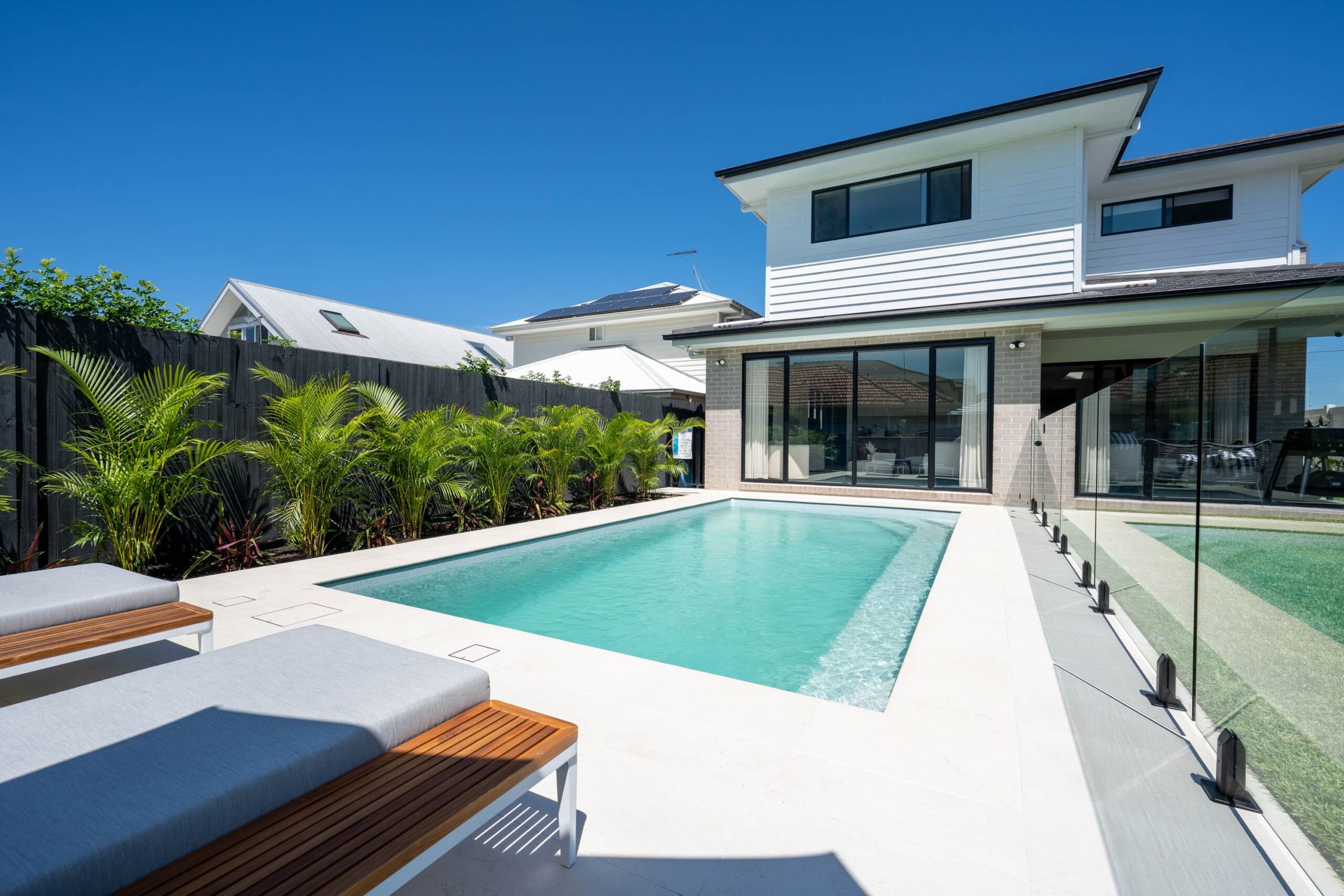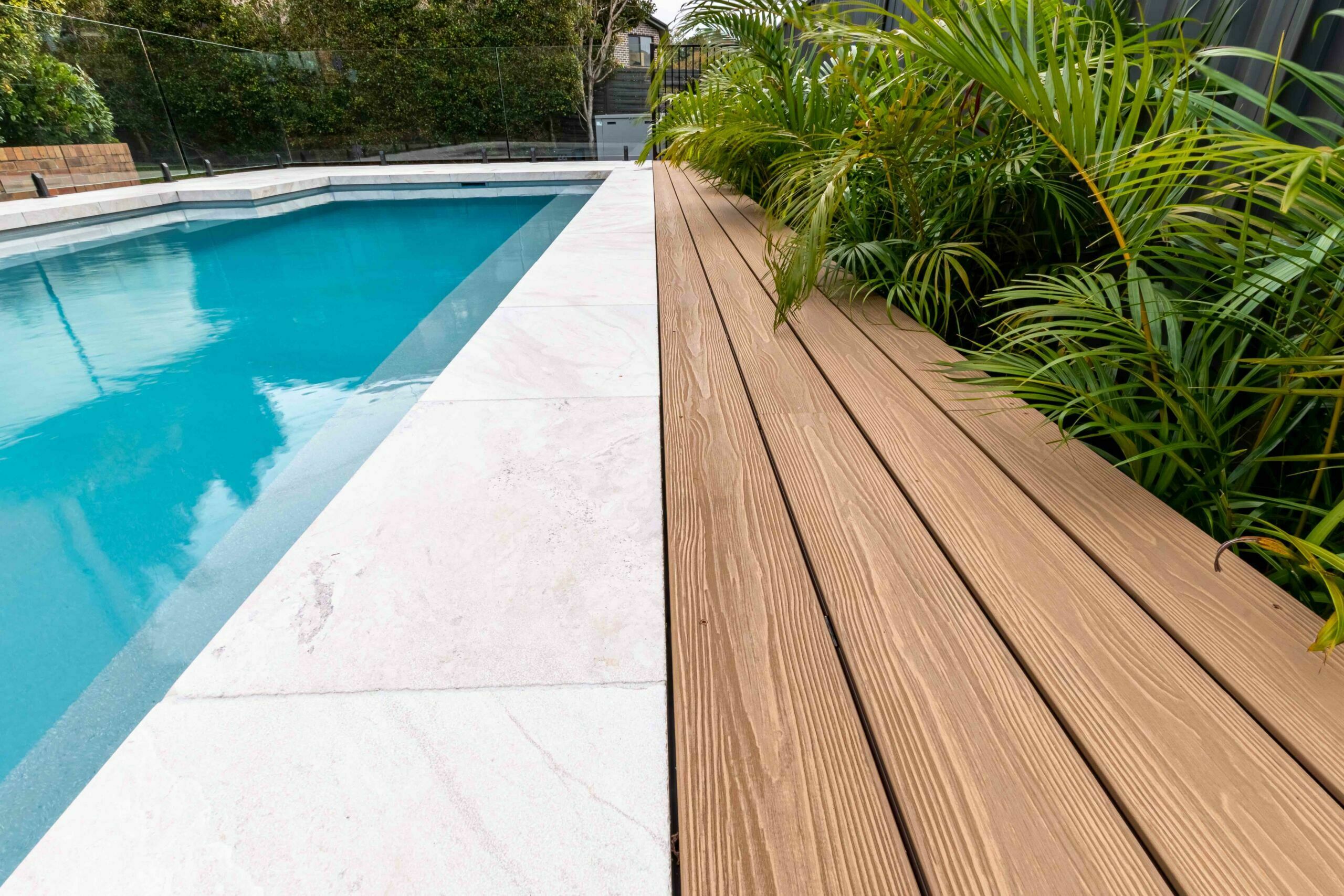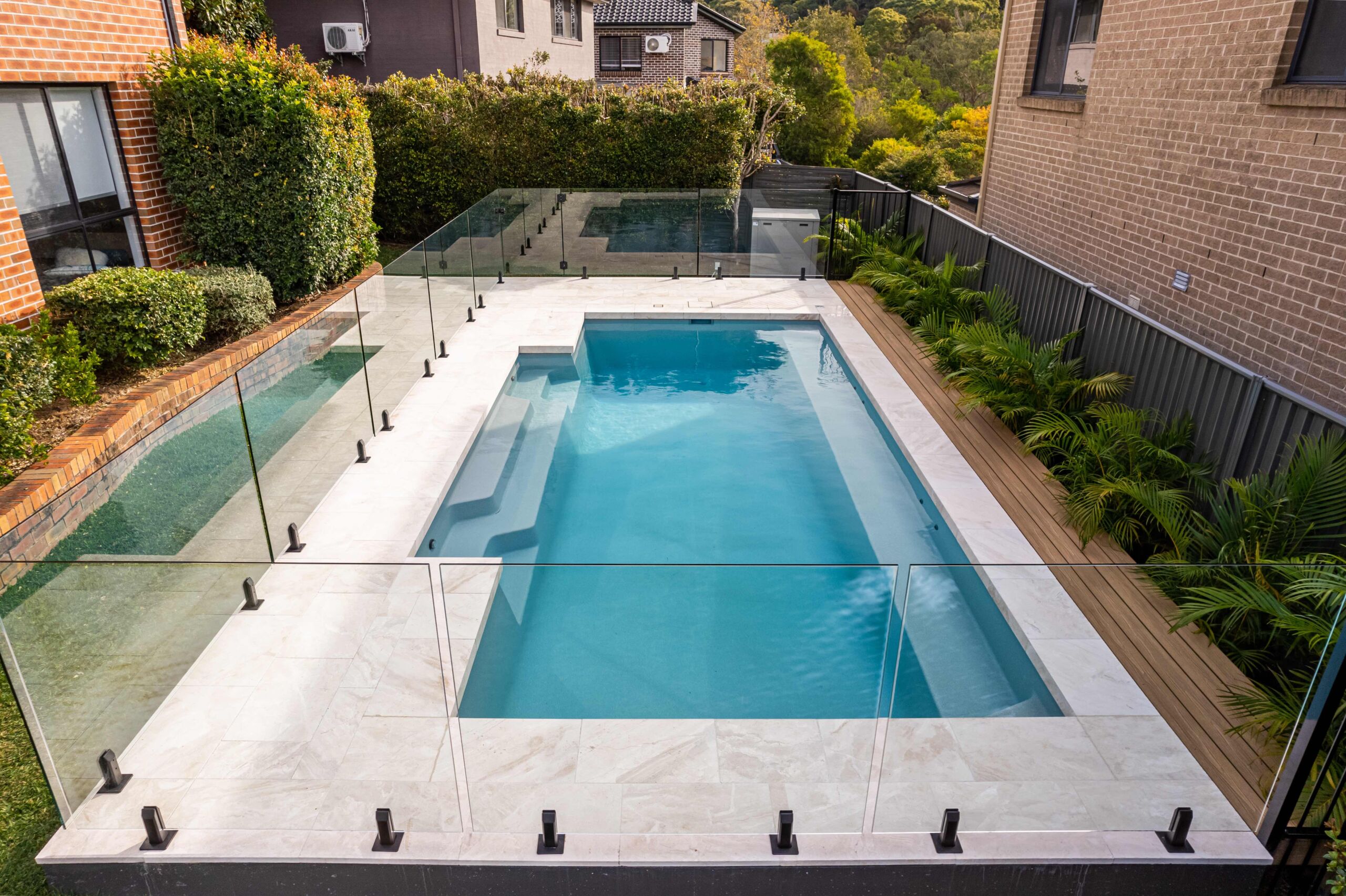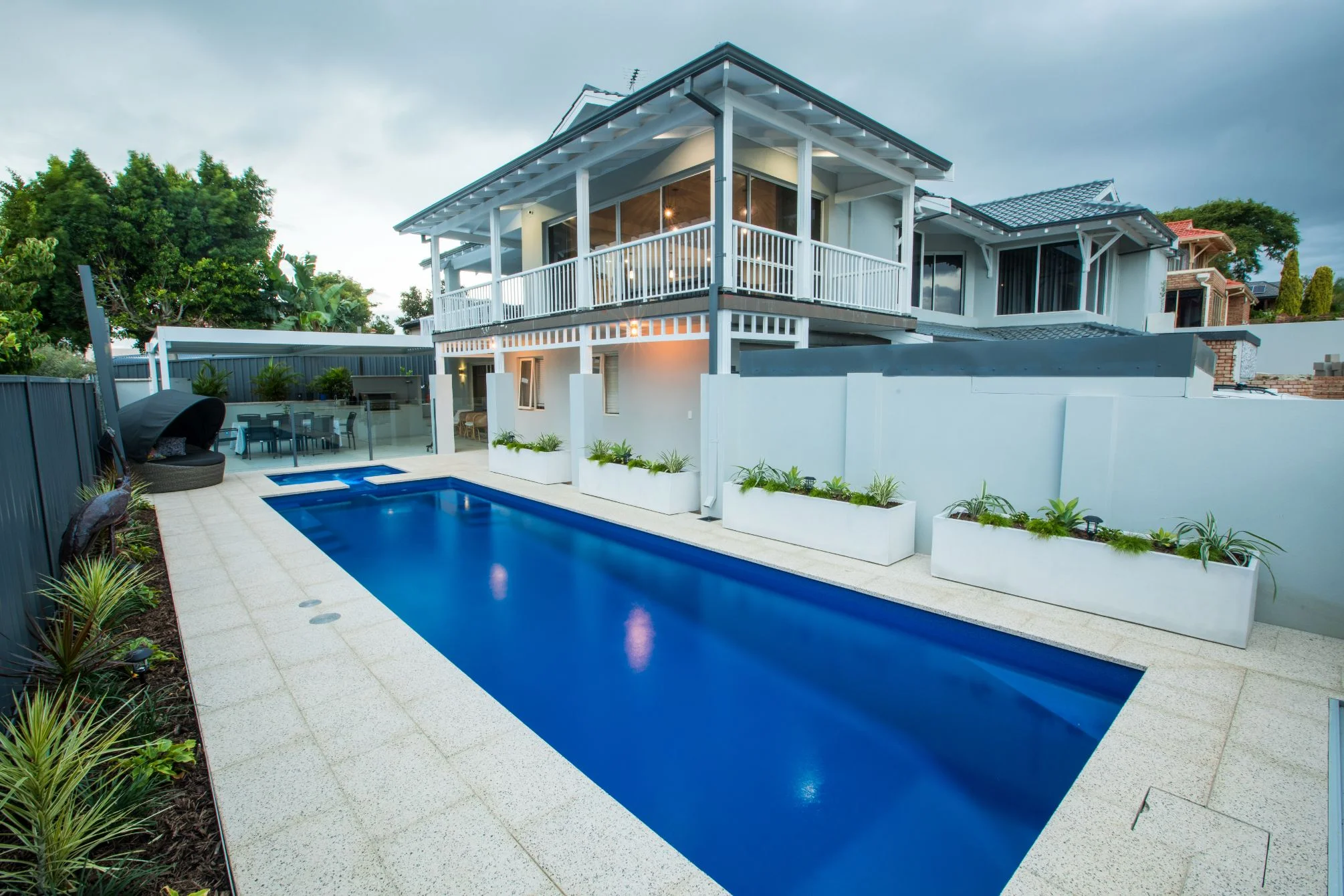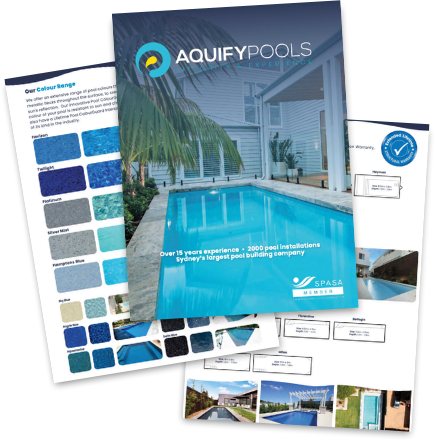Shimmery blue waters in the backyard are no longer just a luxury but an essential part of the Australian dream. With more than 3.1 million Australians living in homes with a swimming pool or spa, they’ve cemented their status as one of the most sought-after home amenities.
But, do they add value to your home? And are they a worthwhile investment? We think so!
Why? Let’s take a look.
The Financial Investment of Pool Ownership
Installing a pool on your property is a substantial financial commitment, but it also has its rewards.
Upfront Costs
The initial outlay for installing a swimming pool includes a range of expenses, including:
- Construction: The core expense, construction costs, can vary based on the type of pool (in-ground vs. above-ground), materials (concrete, fibreglass, vinyl), and size. In-ground pools are generally more expensive due to the excavation required.
- Permits: Before construction begins, homeowners must obtain necessary permits from local authorities. These ensure the pool meets safety standards and regulations, which can vary significantly from one location to another.
- Landscaping: Incorporating a pool into your backyard often necessitates landscaping work to integrate the pool aesthetically into your outdoor living space. This might include decking, paving, plants, and other aesthetic enhancements.
- Fencing: Safety regulations in many areas require pools to be enclosed by fencing to prevent accidental drownings, particularly for children and pets. The fencing cost can add up, depending on the materials used and the perimeter of the pool area.
- Additional Features: Many homeowners opt for extra features such as heating, lighting, waterfalls, or a spa, which further inflate the upfront costs.
Return on Investment (ROI)
While the initial investment can be steep, adding a swimming pool can enhance a property’s value, offering a potential return on investment (ROI) that makes the expenditure worthwhile. Several factors influence this ROI:
- Market Demand: In areas where swimming pools are in high demand, such as warmer climates or upscale neighbourhoods, a pool can significantly increase a property’s appeal and resale value.
- Property Condition: The condition of the rest of the property plays a crucial role. A well-maintained home with a pool is more likely to see a higher ROI than a property where the pool is the only updated feature.
- Quality of Installation: High-quality, well-designed pools are more likely to add value than poorly constructed or aesthetically unappealing pools.
- Economic Factors: Broader economic conditions and real estate market trends can affect ROI. During booming real estate markets, the value added by a pool can be more pronounced.
Lifestyle Benefits vs. Maintenance Costs
Owning a swimming pool can bring fun, tranquillity, and aesthetic appeal to your home. For families, it’s a hub for children’s play and gatherings, promoting an active social life. Adults find it a peaceful place for exercise or relaxation, with low-impact workouts benefiting joint health. Pools boost mental and physical well-being, enhancing cardiovascular health, flexibility, and strength and offering a space for memorable social interactions.
While maintaining a swimming pool involves certain responsibilities and costs, the rewards far outweigh these considerations. Regular upkeep, such as cleaning and chemical balancing, ensures your pool remains a safe and inviting retreat year-round. Periodic tasks, like equipment maintenance or pool resurfacing, are investments in the continued enjoyment and health benefits your pool provides. Smart planning and efficient pool management can mitigate utility costs, making the dream of pool ownership more accessible.
Ultimately, the value of a swimming pool extends beyond its maintenance demands. The opportunities for fitness, relaxation, and creating memories with loved ones make pools a worthwhile addition to any home.
Location and Market Demand
A swimming pool’s value to a property is primarily influenced by its location and the area’s climate. The warmer and sunnier regions, where outdoor living is deeply embedded in the lifestyle, see pools as less of a luxury and more of a necessity. This is particularly true in coastal and suburban areas where the climate encourages year-round outdoor activities.
The local market demand for pools also varies, with homes featuring swimming pools often commanding higher prices and attracting more interest, especially in upscale neighbourhoods and family-oriented communities where outdoor living spaces are highly valued.
Australia’s competitive real estate market further underscores the importance of swimming pools as a differentiator among properties. A well-maintained pool enhances a home’s aesthetic appeal and significantly boosts its market value. According to HouseLogic, a well-designed pool can increase your home’s value by up to 7%. This is especially true in areas with a high concentration of new constructions, where a swimming pool can set a property apart from similarly designed homes.
A swimming pool symbolises comfort and luxury, contributing to a property’s desirability and competitive edge in the market. As preferences for outdoor living continue to grow, coupled with the conducive climate, the demand for homes with swimming pools is expected to remain strong, reflecting their continued importance in enhancing lifestyle choices and property values.
Financing and Affordability
For many, the dream of pool ownership is made possible through financing. Here’s how financing can impact the decision-making process:
- Home Equity Loans: Many homeowners tap into their home equity to fund pool installation. These loans can offer lower interest rates compared to personal loans, making them an attractive option.
- Personal Loans: Personal loans provide an alternative financing route for those without sufficient equity, albeit usually at higher interest rates.
- Budgeting and Long-term Planning: It is essential to consider the ability to secure financing and the long-term financial implications. These include ongoing maintenance costs, increased utility bills, and insurance premiums.
- Value vs. Cost: When considering financing, evaluate whether the enjoyment and potential property value increase justify the loan costs. This calculation should include interest payments over time and the principal amount borrowed.
Final Thoughts
Installing a swimming pool in your home requires financial, lifestyle, and market evaluations. Though the upfront and ongoing costs can be significant, swimming pools can add value to your property and provide various benefits.
Ultimately, a swimming pool can be a valuable addition to your property if it aligns with your personal circumstances, preferences, and market conditions.
Whether looking at fibreglass swimming pools, inground swimming pools, above ground spas, or a plunge pool, if you’re considering the investment, you should conduct thorough research and consult with industry experts before making any decisions. The team at Aquify Pools specialises as a fibreglass pool company with our team of pool builders known to be the best in the business; and we’re here to help you make the right decisions to ensure you have the best ROI.


